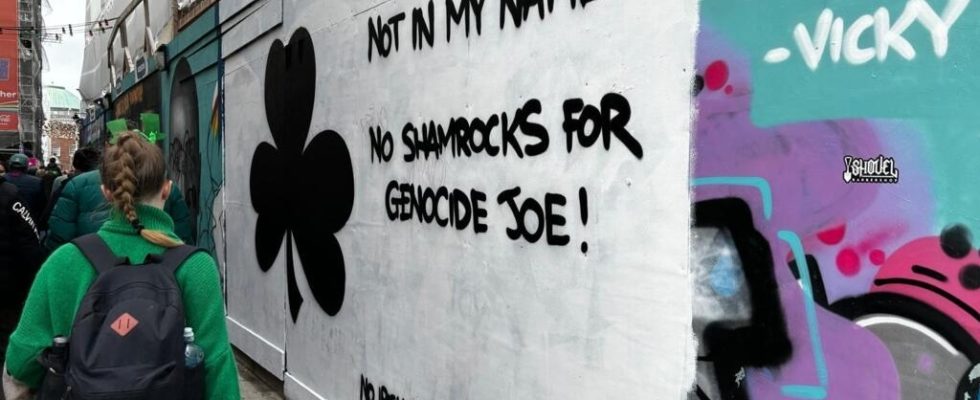In Ireland, support for the Palestinians is a very popular cause. This support can be explained by Ireland’s own history, itself occupied and subject to Great Britain for centuries.
The memory of the struggle against British colonization and, above all, the memory of the Great Famine of 1846, which killed a million Irish people and drove a million others into exile, is still very much alive. And it is revived by the Israeli-Palestinian conflict.
The director of a Dublin football club very marked on the left of the political spectrum, Bohemian FC, eleven times Irish champion, has for example announced the upcoming organization of a friendly match with Palestinian players. Since last year, its players have also worn a jersey in the colors of Palestine.
The unique position in Europe of the Irish in the face of the conflict in the Middle East is the subject of the report in Dublin by Clémence Pénard.
The Israeli-Palestinian conflict causes turbulence in Europe
In Germany, unlike Ireland, a special and friendly relationship with Israel rather prevails. And this is obviously explained by the country’s history with the Jewish people. We know that Germany was guilty of the immeasurable crimes of the Shoah, a historical responsibility which remained anchored in the German Federal Republic, as our correspondent in Berlin Julien Méchaussie.
In Scotland, a law that came into force on April 1 is making waves
This law is called the Hate Crime and Public Order Act. In French, the “Law against hate crimes”. For some, this is a step forward in the protection of minorities. But for others, it marks the end of freedom of expression in Scotland, nothing less. Franceline Beretti tried to see things clearly for us, with her European Eye.
Universities in French-speaking Belgium are in turmoil
At issue: a decree tightening, from next September, not only the conditions of access to studies, but also the conditions for remaining in the university curriculum. The government’s official desire is to prevent too many students from “lagging behind” in their studies. But even within the coalition in power in Wallonia, the controversy is rife, to the point of threatening its continued existence. Two parties out of the three that make up the Walloon government have in fact taken a position in favor of students.
And at the center of this protest movement is a young woman: Emila Oxhaj, 25, leader of the FEF, the Federation of French-speaking Students, the largest Belgian student union in the region, very visible in the French-speaking Belgian media these last weeks. From Brussels, our correspondent Jean-Jacques Héry paints a portrait for us.
A detour through the vital question of access to water in Albania
Just a year ago, the government of Tirana and the American brand Patagonia celebrated with great fanfare an unprecedented event: the creation of a national park to protect the Vjosa, one of the last wild rivers in Europe.
But less than a year later, work is underway to divert the source from its main tributary, which is also protected. The aim of this work is to supply the seaside resorts on the Albanian coast, which are in the midst of a tourist boom. In the valley where the source is located, the local population was not warned. And she worries about her access to water. Environmental defense associations are therefore alarmed, not only about the future national park, but also about the country’s protected areas.. Report from the Shushica valley, in Albania, by Louis Seiller.
